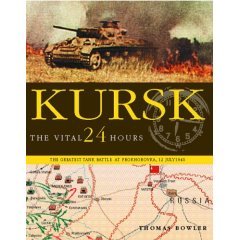After the surrender of General John Burgoyne at Saratoga (October 17, 1777), the British government feared an expanded war that would include France and Spain. In early 1778, despite the initial opposition of King George III, Lord North’s ministry put together a peace commission under Frederick Howard, fifth earl of Carlisle, and empowered it to guarantee a repeal of all parliamentary legislation that had triggered the imperial crisis and restore relations between the rebellious North American colonies and Great Britain to the pre-1763 basis. This offer promised too little and came too late.
In addition to Carlisle, the commission included William Eden and George Johnstone. All three men were sympathetic to the revolutionaries. They left England on April 16, 1778. By the time they reached Philadelphia on June 6, their mission had become hopeless. Nothing but full independence would placate the revolutionaries, who had by now signed a formal alliance with France. Moreover, with the British army about to evacuate Philadelphia and French assistance on its way, many revolutionaries believed that they were on the cusp of winning the war. The Second Continental Congress informed Carlisle soon after his arrival that the only points that it would negotiate were British withdrawal and recognition of independence. When Johnstone’s foolish effort to bribe Robert Morris, Joseph Reed, and Francis Dana became public in August, Congress ordered an end to further communication with the commission. Johnstone resigned from the commission and headed for England. Carlisle and Eden stayed in New York through the fall, trying to appeal to the public and hoping for some movement on the part of the revolutionaries. In the end, there was little for the commission to do, and on November 27, 1778, Carlisle and Eden left for England empty-handed.
Carroll of Carrollton, Charles (1737-1832) member of Continental Congress, senator A member of a leading Catholic family in Maryland, Charles Carroll of Carrollton—he added “of Carrollton” to distinguish himself from his father Charles Carroll of Annapolis and other relatives with the same name— became an important revolutionary leader and a signer of the Declaration of Independence (July 4, 1776). Leaving home at age 10, like many affluent Maryland Catholics, Carroll was educated at St. Omers College in French Flanders. He remained abroad until February 1765 after further education in Paris and London.
As a Catholic, Carroll was debarred from voting and holding civil office in colonial Maryland despite his wealth. However, he entered local politics in 1773 when he wrote the “First Citizen” essays in opposition to the effort by Daniel Dulany to increase fees charged by public officials. Carroll joined with other Maryland politicians to organize a “popular party,” which swept the colonial elections in 1773. Opposition to imperial regulation in 1774 offered Carroll an opportunity to become more directly involved in politics when he became a member of Maryland’s second provincial convention. Since he was an early advocate of independence, in March 1776 the Second Continental Congress sent Carroll—along with his cousin John Carroll and Benjamin Franklin—to Canada to stir up support for the revolutionary cause. Although this effort was not successful, after Carroll’s return he was chosen as a delegate to the Second Continental Congress, where he signed the Declaration of Independence on August 2.
Carroll may have supported independence, but he was no democrat. In Maryland he helped to write the conservative state constitution (see also constitutions, state) that would guarantee his class continued political dominance. Once the new government was in place, however, Carroll sought to make it popular by shifting the tax burden from a poll tax to a tax on land and slaves, and he supported a law that allowed paper currency to be used to pay prewar debts. These positions antagonized his father. Carroll believed that it was better to steer with the popular current than against it if you hoped to guide the ship of state. Carroll remained active in politics until 1800, serving in the Continental Congress in 1776 and in 1777-78. He also became a Maryland state senator and sat in the U. S. Senate from 1789 to 1792. Carroll declined attending the Constitutional Convention but supported the Constitution as the best way of restraining the “excesses of an uncontrolled Democracy.” During the 1790s he sided with the Federalist Party and opposed the election of Thomas Jeeeerson as president.
Carroll was also a successful planter and businessman. Not only did he own more than 300 slaves and tens of thousands of acres in Maryland, Pennsylvania, and New York, he also had interests in iron manufacturing, banks, foreign stocks, turnpikes, and canals. Toward the end of Carroll’s life he even invested in railroads. At his death—Carroll was the last of the signers of the Declaration of Independence to die—he was worth an estimated $1.5 million.
Further reading: Thomas O’Brien Hanley, Charles Carroll of Carrollton: The Making of a Revolutionary (Washington, D. C.: Catholic University of America Press, 1970);
-, Revolutionary Statesman: Charles Carroll and the
War (Chicago: Loyola University Press, 1983).




 World History
World History









